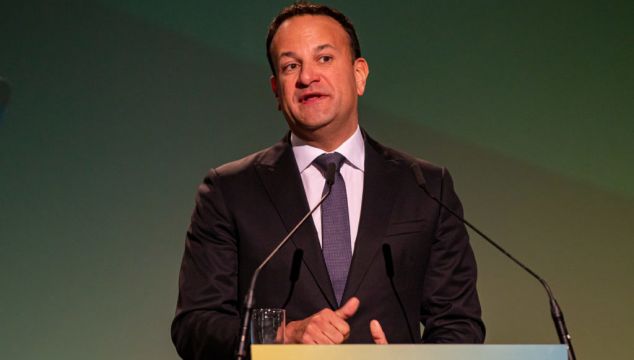The Tánaiste has said it would be a “great shame” if the Stormont powersharing institutions are not restored in time to mark the 25th anniversary of the Good Friday Agreement next Easter.
Leo Varadkar also said it is unfortunate that, without the institutions “up and running”, nobody can legitimately say they speak for the people of Northern Ireland.
The Tánaiste’s remarks came as MLAs met during a recalled sitting of the Northern Ireland Assembly in another doomed attempt to restore the Executive.
The DUP has been urged to drop its boycott of the institutions to help deliver energy support payments to people in Northern Ireland struggling to deal with the cost-of-living crisis.
Speaking in Government Buildings in Dublin, Mr Varadkar said: “It would be a great shame if we marked the 25h anniversary of the Good Friday Agreement next Easter and didn’t have the institutions that were established in that agreement up and running. I think that would be a real shame.
“What I would say to all the parties in Northern Ireland, when it comes to any issue, whether it’s the protocol, whether it’s economic issues, whatever they are – we want to hear the voice of Northern Ireland.
“Without an Assembly functioning and without an Executive, there is nobody who can legitimately say they speak for Northern Ireland. The parties and party leaders can only say at the moment that they speak for their parties.
Mr Varadkar said the Irish Government wants an Executive formed and a first minister and deputy first minister elected.
He added: “We want to be able to hear the voice of Northern Ireland on any decision we make that affects them and unfortunately that’s not possible at the moment.”
The DUP has refused to engage with the devolved institutions in Belfast in the wake of May’s Assembly election, meaning it has not been possible to form a ministerial executive.
The boycott is part of the party’s campaign of opposition to Brexit’s Northern Ireland Protocol and the party has said it will not return to powersharing until decisive action is taken to remove the protocol’s economic barriers on trade between Great Britain and Northern Ireland.
Negotiations between the UK government and the EU to resolve differences over the protocol are continuing.







